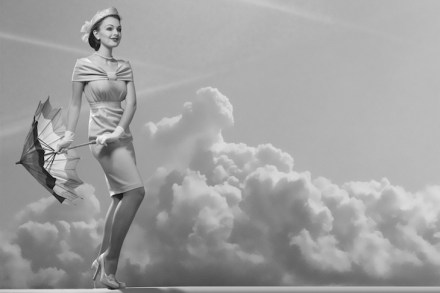A spy in la-la land
In 1940, the British Security Coordination sent an agent with an assistant to a Hollywood film studio to help promote the British war effort in America. This is the inspiration behind Louise Levene’s enjoyable new novel Happy Little Bluebirds. Here, though, the assistant — Evelyn Murdoch, who was working at the Postal Censorship department in Woking — discovers that she was drafted in by mistake: HQ didn’t read her file properly and assumed she was a man (‘Red faces all round,’ a British Intelligence worker tells Evelyn when she arrives in the United States), which is one of the only moments in the narrative that feels stretched. The agent who





















